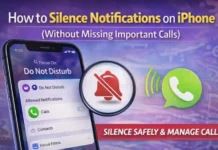Does your stomach get butterflies when there’s a looming work deadline? If you have a presentation coming up, do you find yourself feeling so nervous and fearful that you are unable to focus on important tasks? Do you try to hide from your boss more often? Do you make excuses to get out of office parties and staff lunches? Do you feel like there is a lump in your throat when you have to deal with conflicts or workplace bullying? If your answer to most of these questions is yes, then chances are, you have work anxiety.
If you are an anxious person and experience high levels of stress at work that negatively impacts your focus and motivation, know that you are not alone and it’s completely normal. According to research, 83% employees in the U.S. suffer from some level of work-related anxiety. But if you realize that your stress is constant, and it is drastically affecting your quality of life, then it’s likely that it is an anxiety disorder.
Having anxiety disorders means that you may even start fretting over easy-to-do tasks like coordinating with colleagues and sending emails. Even some people with severe anxiety may turn down a promotion because it involves participating in meetings or public speaking. If you are going through a similar situation, you should consider seeking professional help. You may even seek therapy online if you can’t meet the therapist in person. For that, it is important to have a stable internet connection from a reliable and trustworthy internet service provider.
Regardless of whether you are undergoing therapy to manage severe anxiety, hopefully, you will be able to stay calm, productive, and more focused by using the below-mentioned strategies. So, let’s take a look!
Speak to Your Co-Workers
You might not feel comfortable doing this, but speaking to your colleagues about your anxiety may help. If you are lucky enough to have a co-worker who is trustworthy, you should reach out to them without thinking twice. They may be able to make you feel better and help keep you on track as well.
Some people may not be comfortable disclosing their anxiety to a co-worker. But if someone at work is already well-aware of what you are going through, you end up feeling more socially supported. This could also help in lowering your stress levels in no time.
Don’t Assume the Worst
Usually, people with anxiety imagine the worst-case scenarios. It is not a good idea to fall into the trap of negative outcomes. Maybe you fail to meet the deadline and you are dreading that you might get fired. The good news is: you probably will not be fired over not delivering your task on time, especially if you are good at what you do.
Instead of anticipating that your boss will be so mad at you, imagine having a discussion with them about your condition and the roadblocks you are facing. Chances are, your boss will end up offering you accommodations that will help you do your job more effectively.
Set Realistic Deadlines
If you are an anxious person, you might make the mistake of agreeing to deadlines and timelines that you already know you won’t be able to meet. It is not a good idea to take on projects, tasks, or assignments that you do not have time to handle.
When there is already a lot on your plate, it is better to be honest upfront with the assignee than to spend the rest of your day stressing over the pending task.
Avoid Work Gossip
If your colleagues keep gossiping about the boss, try not to join in the conversation. Sometimes, it is good to have a friendly work banter but if you always find your co-workers gossiping about supervisors, you should consider stepping away from the situation as soon as possible. It’s always possible that you might be the topic of conversation whenever your back is turned. You can do nothing about alleviating the gossip, but what you can do is not let it negatively impact you.
Make sure you are careful when you vent to people at work. Just because they listen to your rants does not necessarily mean that they have your best interests at heart or they consider you a good friend.
Wrapping It Up
We always experience anxiety to some extent at one point or another in our lives but we need to make sure that it does not interfere with our work. By building solid relationships, improving communication, and asking for help when in need, you can lessen your anxiety. If none of the aforementioned tips work for you, then try reaching out to a professional.























